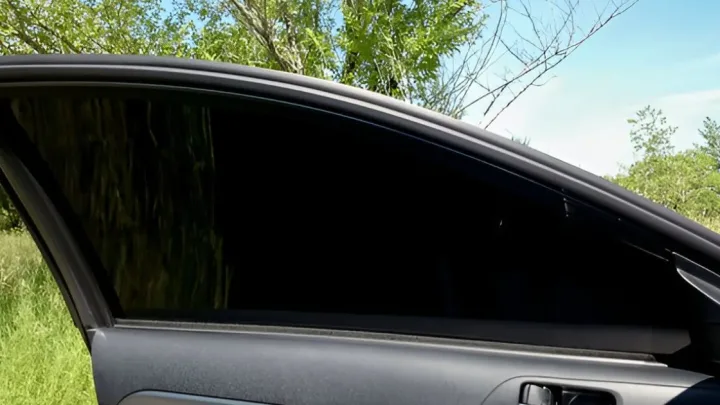
Privacy glass on cars enhances security and reduces heat buildup. It also offers improved UV protection for passengers.
Privacy glass, often referred to as tinted windows, is not just an aesthetic upgrade for vehicles. It plays a crucial role in bolstering security and comfort for drivers and passengers alike. By obstructing the view into the car, it deters potential thieves, keeping valuables out of sight.
The special coating on privacy glass significantly reduces the amount of heat entering the vehicle, creating a cooler, more comfortable interior environment during hot days. This feature is particularly beneficial in areas with high temperatures, making journeys more pleasant. Additionally, the UV protection it offers helps prevent the sun’s harmful rays from damaging the skin and fading the car’s upholstery. Opting for privacy glass is a smart choice for anyone looking to enhance their vehicle's security, comfort, and passenger protection from UV rays.
Introduction To Privacy Glass In Cars
One of the benefits of having agiant glass on cars roof in the Telas Privacy glass in cars is a game-changer for comfort and security. It offers a sleek look while keeping prying eyes at bay. Drivers enjoy a cooler cabin, enhanced aesthetics, and added protection from ultraviolet rays. In this section, we'll explore what privacy glass is and its historical development.
What Is Privacy Glass?
Privacy glass, often known as tinted glass, limits visibility into a vehicle. It's a special treatment applied to car windows. This treatment ensures passengers can see out, but outsiders struggle to peer in. Privacy glass also blocks a significant amount of sunlight. It helps to maintain a comfortable temperature inside the vehicle. This type of glass is a popular feature in many modern cars.
History And Evolution
The journey of privacy glass began decades ago. Early tints were not as sophisticated as today's versions. They were often just darker shades of glass. In the 1960s, the first window films were introduced. Innovation and technology have since transformed these films. Now, they offer superior privacy and protection. Modern privacy glass uses advanced materials. These materials provide durability and better control of heat and UV exposure. Over time, privacy glass has evolved into a multifunctional car feature.
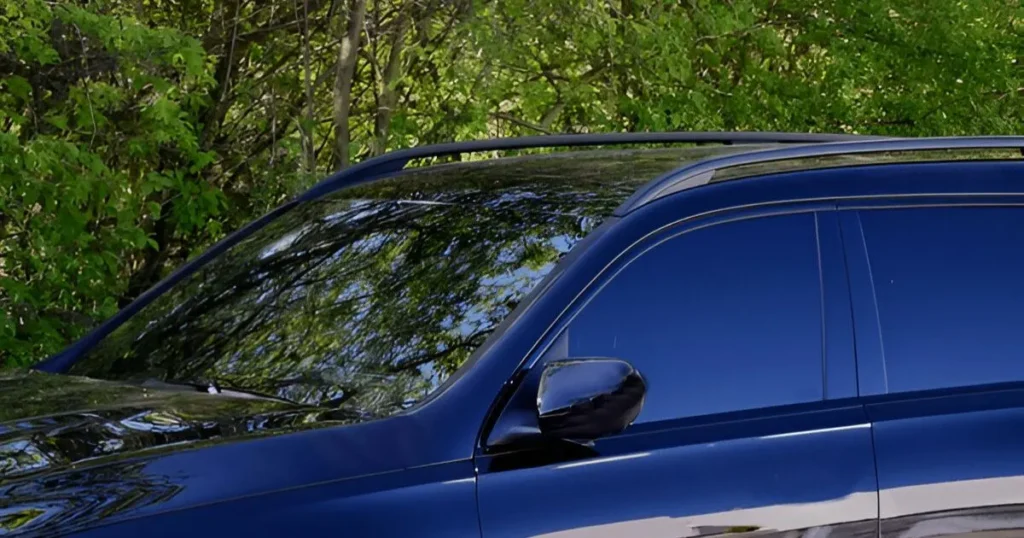
How Privacy Glass Works
Privacy glass on cars offers increased security and comfort. It limits visibility from the outside while allowing drivers and passengers to see out clearly. Privacy glass works by using advanced technology to control light and visibility.
The Science Behind It
Privacy glass uses a layer of film with microscopic particles. These particles reflect or absorb light. This process, known as light filtration, reduces the transparency of the glass from the exterior. Passengers inside the car enjoy natural light without the gaze of outsiders.
Related Post:
How to Replace Sunroof Glass Seal on a Car: Quick Fix Guide
How Much to Fix Car Window Motor: Quick Cost Guide by Video
How Do You Get Green Algae off Car Window Seals: Quick Solutions!
How Much Does It Cost to Replace a Car Window Regulator: Insider Tips
How to Use Sunroof Rail on a Car: Video Instruction
How Much to Replace a Car Sunroof: Video Discussion!
Types Of Privacy Glass
- Factory Tint: Built into the glass during production. Offers a consistent and durable finish.
- Aftermarket Film: Applied to the glass after manufacturing. Provides flexibility in tint levels and colors.
- Smart Glass: Utilizes electronic technology. Allows users to adjust the level of tint on demand.
Security Advantages Of Privacy Glass
The Security Advantages of Privacy Glass in cars are numerous. This feature not only adds aesthetic appeal but also serves as a critical layer of protection for drivers and their belongings. Let's delve into the key security benefits that privacy glass offers.
Deterrent To Theft
Privacy glass makes it harder for potential thieves to see inside a vehicle. Valuables remain out of sight, significantly reducing the temptation for a smash-and-grab. The darkened windows provide a shield, keeping personal items away from prying eyes.
Protection Against Break-ins
Privacy glass is often thicker and more robust than standard car windows. This added strength makes it more challenging to shatter, offering an extra layer of defense against break-ins. The time and effort it takes to break through privacy glass can deter a thief altogether, as they typically seek quick and easy targets.
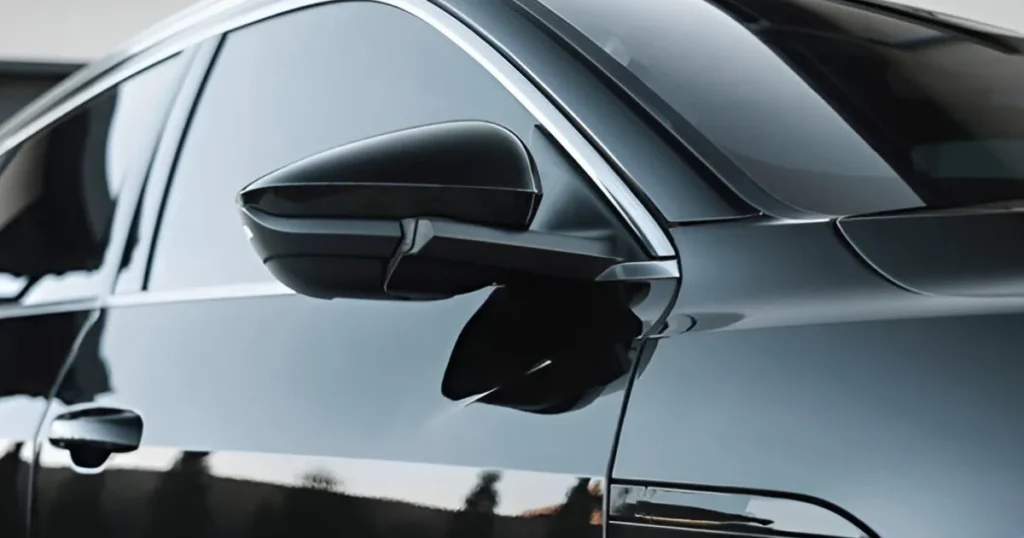
Privacy Benefits of glass on cars
Privacy glass on cars offers multiple advantages. It ensures comfort and safeguards belongings. Let's explore these benefits in detail.
Personal Space And Comfort of glass on cars
Privacy glass, often known as tinted windows, elevates personal space. It creates a secluded environment. Passengers experience increased comfort. Sun glare reduces significantly. This contributes to a cooler car interior. The drive becomes more enjoyable.
Reduced Visibility For Valuables of glass on cars
Privacy glass keeps valuables out of sight. It acts as a deterrent against theft. Belongings like electronics, bags, and documents stay hidden. Car owners can park with peace of mind. The risk of break-ins drops. Security for parked vehicles improves.
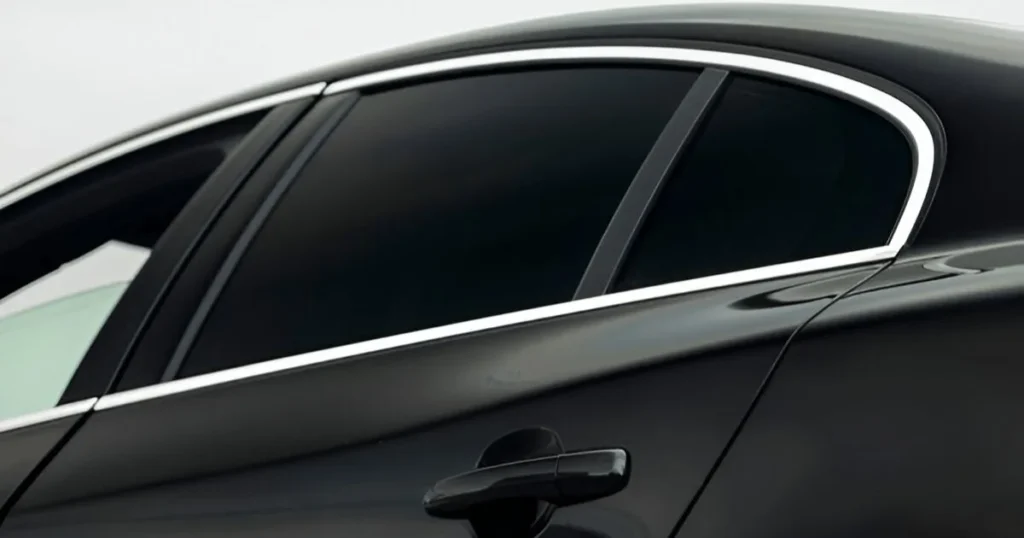
Protection From The Sun of glass on cars
Protection from the Sun is a significant benefit of privacy glass on cars. Drivers and passengers enjoy a cooler interior and reduced glare. Moreover, privacy glass offers essential protection against harmful sun exposure.
Uv Ray Blockage
Privacy glass in vehicles plays a crucial role in blocking ultraviolet (UV) rays. These invisible rays from the sun can harm skin and eyes. With privacy glass, up to 99% of these rays get blocked. This protection is akin to wearing a high SPF sunscreen, but for your car's interior.
- Reduces risk of skin cancer
- Shields against eye discomfort
- Prevents sunburns during long drives
Interior Preservation
Car interiors suffer from prolonged sun exposure. Colors fade and materials crack or warp over time. Privacy glass helps preserve the interior's appearance and integrity. This results in a more pleasant driving experience and higher resale value.
| Without Privacy of glass on cars | With Privacy of glass on cars |
|---|---|
| Rapid color fading | Colors stay vibrant longer |
| Leather and plastics crack | Materials remain intact |
Energy Efficiency And Comfort of glass on cars
Energy Efficiency and Comfort are vital when considering car upgrades. Privacy glass on cars is not just about style or privacy. It also offers significant energy efficiency and improves comfort. These features make driving a more pleasant experience.
Temperature Control
Privacy glass helps maintain a consistent temperature inside your car. The sun's rays can heat up a vehicle quickly. This can make it uncomfortable to enter and drive. With privacy glass, sunlight is significantly reduced. This helps keep the interior cooler on hot days.
- Less reliance on air conditioning.
- Keeps car interiors cool in summer.
- Retains heat during cold weather.
Reduced Glare of glass on cars
Glare from the sun can be a distraction and a hazard. It can make it hard to see the road. Privacy glass significantly cuts down the glare. This makes driving safer and more comfortable.
| Without Privacy Glass | With Privacy Glass |
|---|---|
| High glare | Reduced glare |
| Eye strain | Improved vision |
| Distractions | Enhanced focus |
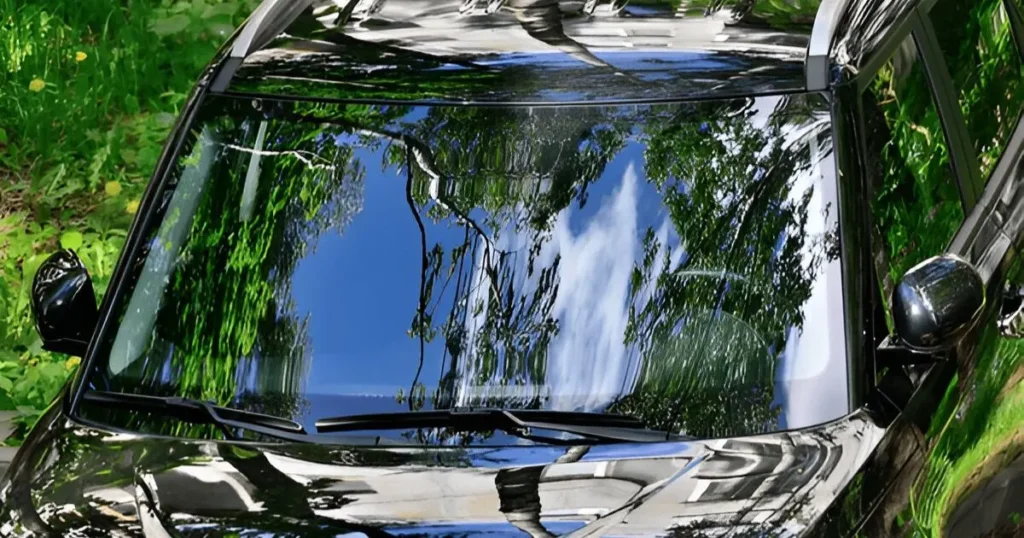
Regulations And Legal Considerations of glass on cars
Regulations and Legal Considerations play a crucial role in the use of privacy glass on vehicles. It's essential for car owners to understand and comply with these rules to avoid fines and ensure safety. Let's explore the legal aspects of car tinting.
Understanding Tint Laws
Tint laws vary by location. They dictate how dark your tint can be. These laws also define which windows you can tint. Knowing these regulations is vital for legal compliance.
Each state or country has its own set of rules. The Visible Light Transmission (VLT) percentage is key. It measures the light passing through your car windows. Higher VLT means more light enters, and the tint is lighter.
| State | Front Side Windows VLT | Rear Side Windows VLT | Rear Window VLT |
|---|---|---|---|
| California | 70% | Any% | Any% |
| Texas | 25% | Any% | Any% |
| New York | 70% | Any% | Any% |
Compliance And Safety
Compliance with tint laws ensures safety. Dark windows can limit visibility, especially at night. This can lead to accidents. Hence, safety is a top priority.
Enforcement officers use tint meters to check VLT. Non-compliance can result in penalties. These range from fines to the requirement to remove the tint. To avoid such issues, always follow local tint laws.
- Check your local laws before tinting your car windows.
- Use professional services for accurate VLT application.
- Remember, safety comes first, so choose the right tint level.
Choosing The Right Privacy of glass on cars
When you decide on privacy glass for your car, you choose comfort and security. Privacy glass, also known as tinted windows, shields the interior of your vehicle from prying eyes while also protecting passengers from the sun's glare. Let's explore how to select the perfect privacy glass for your car.
Factors To Consider of glass on cars
- Legal Restrictions: Check your local laws for tint levels allowed.
- UV Protection: Ensure the glass blocks harmful UV rays.
- Visibility: Choose a tint that ensures clear vision day and night.
- Quality: Opt for durable, scratch-resistant materials.
- Shade: Pick a shade that complements your vehicle's style.
Installation Tips of glass on cars
- Seek professional installers for a flawless finish.
- Clean windows thoroughly before application.
- Measure windows to match the tint film size.
- Avoid bubbles by using the right tools and techniques.
- Allow time for the film to cure for best results.
Choosing the right privacy glass means balancing aesthetics, protection, and legality. Take time to research and select a quality product that meets your needs and follows the rules of the road. With the proper installation, privacy glass can offer a sleek look while ensuring your comfort and security on every journey.
Related Post:
How to Make a Sunroof in a Car: DIY Installation Guide with Video
How Do I Know If My Car Windshield Washer Pump is Bad – Video In Reaction
What is the Best Way to Clean the Car Windshield: Video Tips
Conclusion
Embracing privacy glass in vehicles is a wise choice for discerning drivers. It ensures comfort, security, and UV protection, enhancing the driving experience. As we've explored, the advantages are clear and significant. Opting for privacy glass is not just a trend. it's a smart investment in your car's value and your well-being on the road. See the details on Videos
Disclosure
Some links may be affiliate links. That means we may earn a small commission at no extra cost to you.